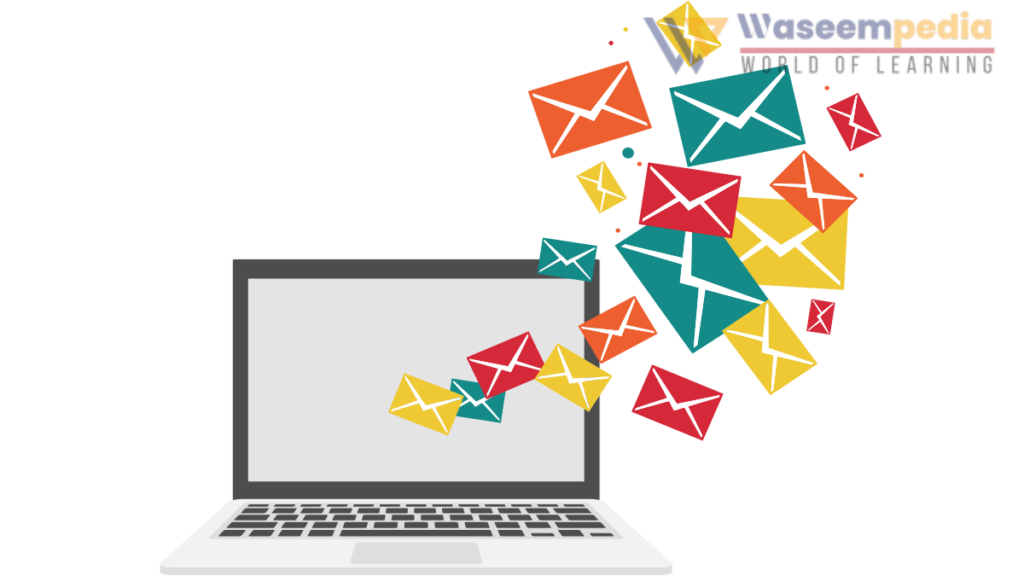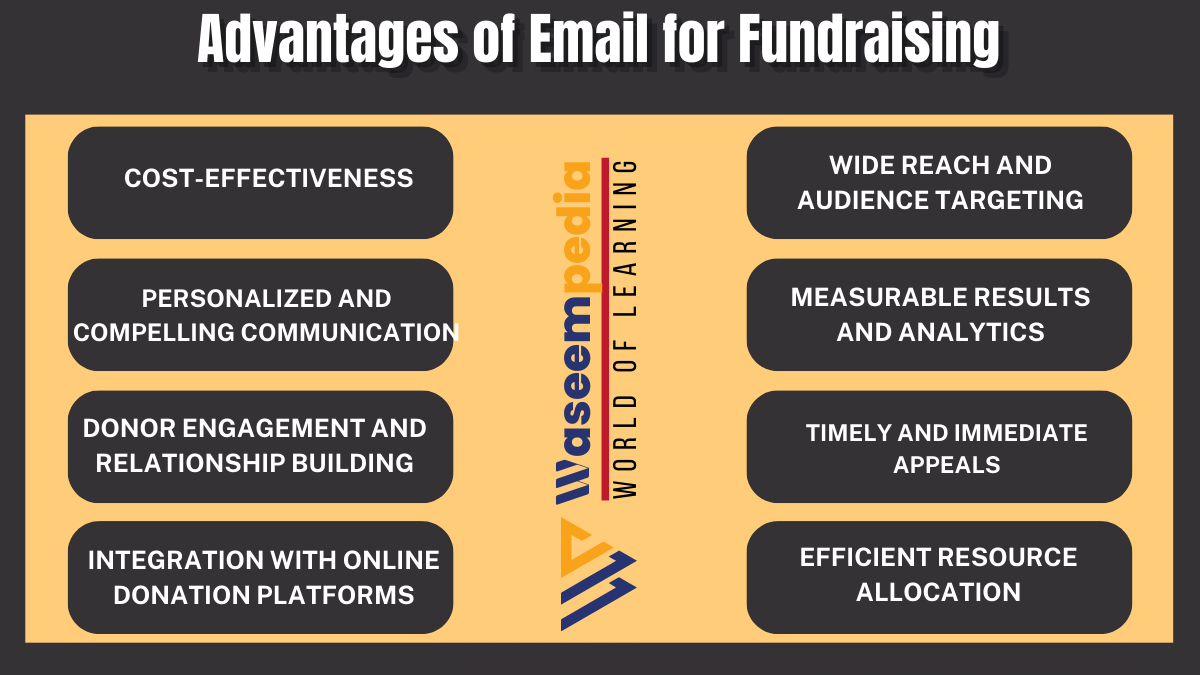Email has revolutionized fundraising, offering significant advantages over traditional methods. Its benefits, including cost-effectiveness, wide reach, personalized communication, measurable results, donor engagement, timely appeals, integration with online donation platforms, and efficient resource allocation, make it an indispensable tool for successful fundraising campaigns. Here we discuss the various Advantages of Email for Fundraising.

By leveraging the power of email, fundraisers can connect with potential donors, cultivate relationships, and generate the support needed to make a positive impact.
Fundraising plays a vital role in supporting charitable organizations, nonprofits, and other causes. In the digital age, email has become a powerful tool for fundraising campaigns, providing numerous advantages over traditional methods.
Leveraging email for fundraising efforts offers benefits such as cost-effectiveness, wide reach, personalized communication, measurable results, and donor engagement. This article explores the advantages of using email for fundraising, highlighting its ability to connect with donors and generate support for important causes.
Email also provide the many advantages in file sharing customer support and Customer Retention.
Introduction of Email for Fundraising
Fundraising is essential for organizations and causes that rely on financial support to make a difference. Email has revolutionized the way fundraising campaigns are conducted, offering advantages that streamline the process, enhance donor engagement, and drive successful outcomes.
By harnessing the power of email, fundraisers can effectively connect with potential donors, cultivate relationships, and generate the support needed for their cause.
8 Advantages of Email for Fundraising
8 Advantages of Email for Fundraising are as follows
Email fundraising campaigns are highly cost-effective compared to traditional fundraising methods. Sending email appeals incurs minimal costs, eliminating expenses associated with printing, postage, and physical materials.
With email, fundraisers can reach a large audience at a fraction of the cost, ensuring that a higher percentage of the funds raised goes directly to the cause.
2. Wide Reach and Audience Targeting
Email provides fundraisers with a wide reach and the ability to target specific audiences. Through email lists and segmentation, fundraisers can tailor their messages to different donor segments based on interests, previous giving history, or other relevant criteria.
This targeted approach ensures that fundraising appeals reach the right audience, increasing the likelihood of a positive response.
3. Personalized and Compelling Communication
Email allows fundraisers to deliver personalized and compelling communication to potential donors. Personalization features, such as addressing recipients by name and referencing past interactions or donations, create a sense of connection and demonstrate appreciation for the donor’s support.
Additionally, fundraisers can craft persuasive and emotionally impactful messages that inspire potential donors to take action.
4. Measurable Results and Analytics
Email fundraising campaigns provide measurable results and valuable analytics. Fundraisers can track key metrics such as open rates, click-through rates, conversion rates, and donation amounts.
These insights help assess the effectiveness of campaigns, identify areas for improvement, and refine fundraising strategies for better outcomes. Data-driven decision-making ensures that resources are allocated efficiently to maximize fundraising efforts.
5. Donor Engagement and Relationship Building
Email enables fundraisers to engage donors and build lasting relationships. Regular email communication keeps donors informed about the impact of their contributions, updates them on the organization’s progress, and expresses gratitude for their support. By nurturing relationships through personalized emails, fundraisers can strengthen the donor’s connection to the cause and encourage continued support.

6. Timely and Immediate Appeals
Email allows fundraisers to send timely and immediate appeals for urgent needs or time-sensitive campaigns. Fundraisers can reach donors quickly with relevant information and motivate them to respond promptly.
This agility is particularly crucial in emergency situations or when fundraising for time-critical projects, ensuring that donors can contribute when their support is most needed.
7. Integration with Online Donation Platforms
Email seamlessly integrates with online donation platforms, facilitating the donation process for potential donors. By including direct links to donation pages in emails, fundraisers can provide a seamless and convenient giving experience.
This integration eliminates barriers to donating and increases the likelihood of donors following through with their contributions.
8. Efficient Resource Allocation
Email fundraising campaigns enable efficient resource allocation. Compared to traditional fundraising methods, such as in-person events or direct mail, email requires fewer logistical resources and reduces manual effort.
This allows fundraisers to focus their resources on other critical aspects of the campaign, such as donor stewardship or impact reporting.
Related FAQ’s
How are email fundraising campaigns cost-effective?
Email fundraising campaigns incur minimal costs compared to traditional methods, eliminating expenses related to printing, postage, and physical materials.
How does email enable fundraisers to reach a wide audience?
Through email lists and segmentation, fundraisers can target specific audiences based on interests, giving history, or other criteria, ensuring that fundraising appeals reach the right people.
Can fundraisers personalize their communication through email?
Absolutely, fundraisers can personalize email communication by addressing recipients by name, referencing past interactions or donations, and crafting compelling messages tailored to each donor.
What benefits do fundraisers gain from measuring results and analytics?
Measuring email campaign results provides valuable insights into the effectiveness of fundraising efforts, identifies areas for improvement, and helps fundraisers allocate resources efficiently.

